Case Study Analysis: Healthcare Professional Skills and Patient Care
VerifiedAdded on 2021/06/16
|5
|940
|486
Case Study
AI Summary
This case study analysis examines a healthcare scenario where nursing professionals failed to provide adequate therapeutic care, resulting in poor patient outcomes. The analysis identifies issues such as a lack of patient education, ineffective communication, and insufficient social support. The patient, experiencing restricted mobility and a lack of understanding of her medications, suffers from a diminished quality of life. The proposed solutions include implementing physical and occupational therapies, providing comprehensive patient education to improve health literacy, and assigning social care workers to address the patient's mental, emotional, and physical needs. The analysis also highlights the existing knowledge of paramedics and healthcare professionals while pinpointing the need for improved communication skills, relationship building, and an understanding of the importance of patient education and social support. The plan of action involves training sessions and workshops to enhance healthcare professionals' skills, with expected outcomes including improved communication, increased patient satisfaction, and better patient outcomes.
1 out of 5
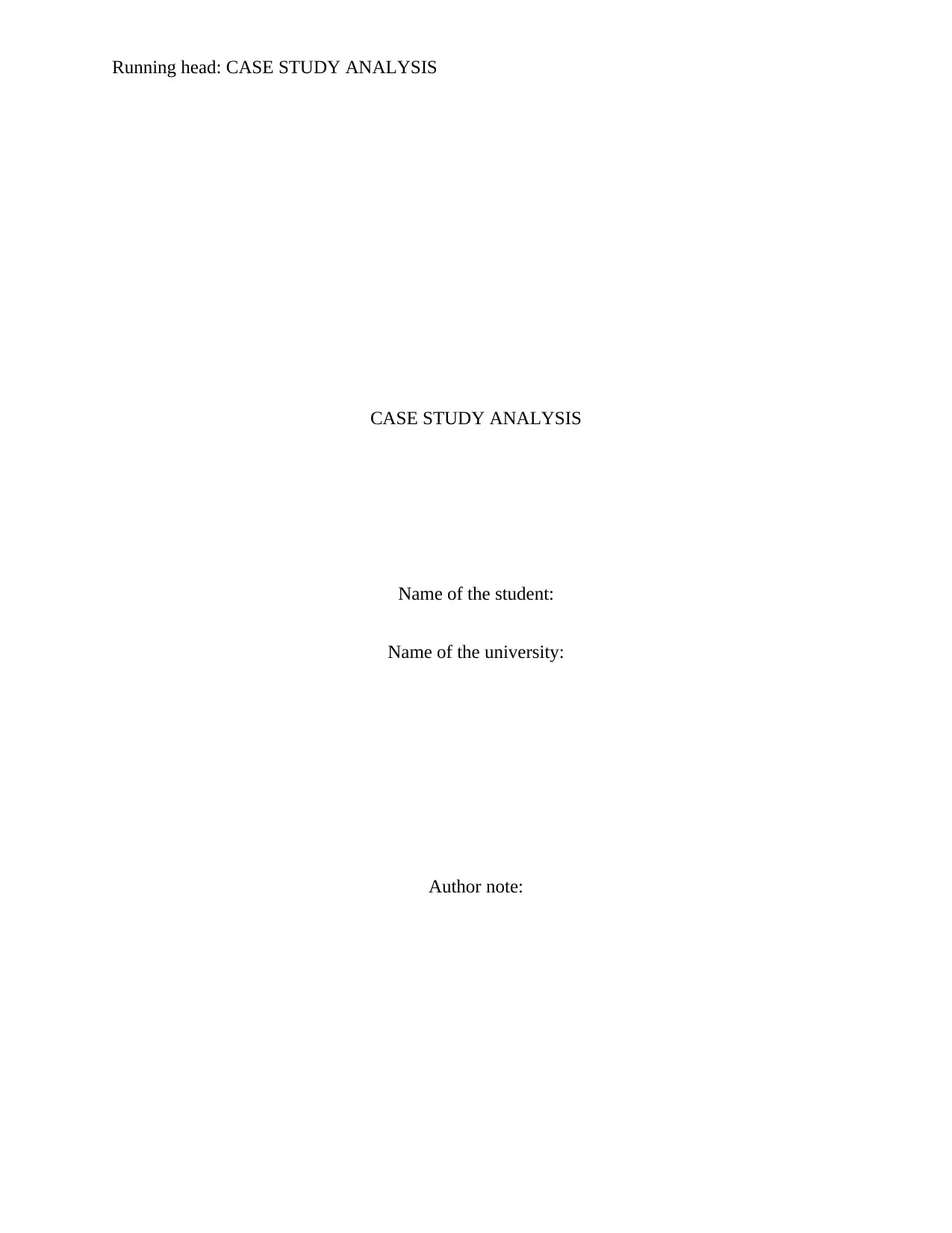
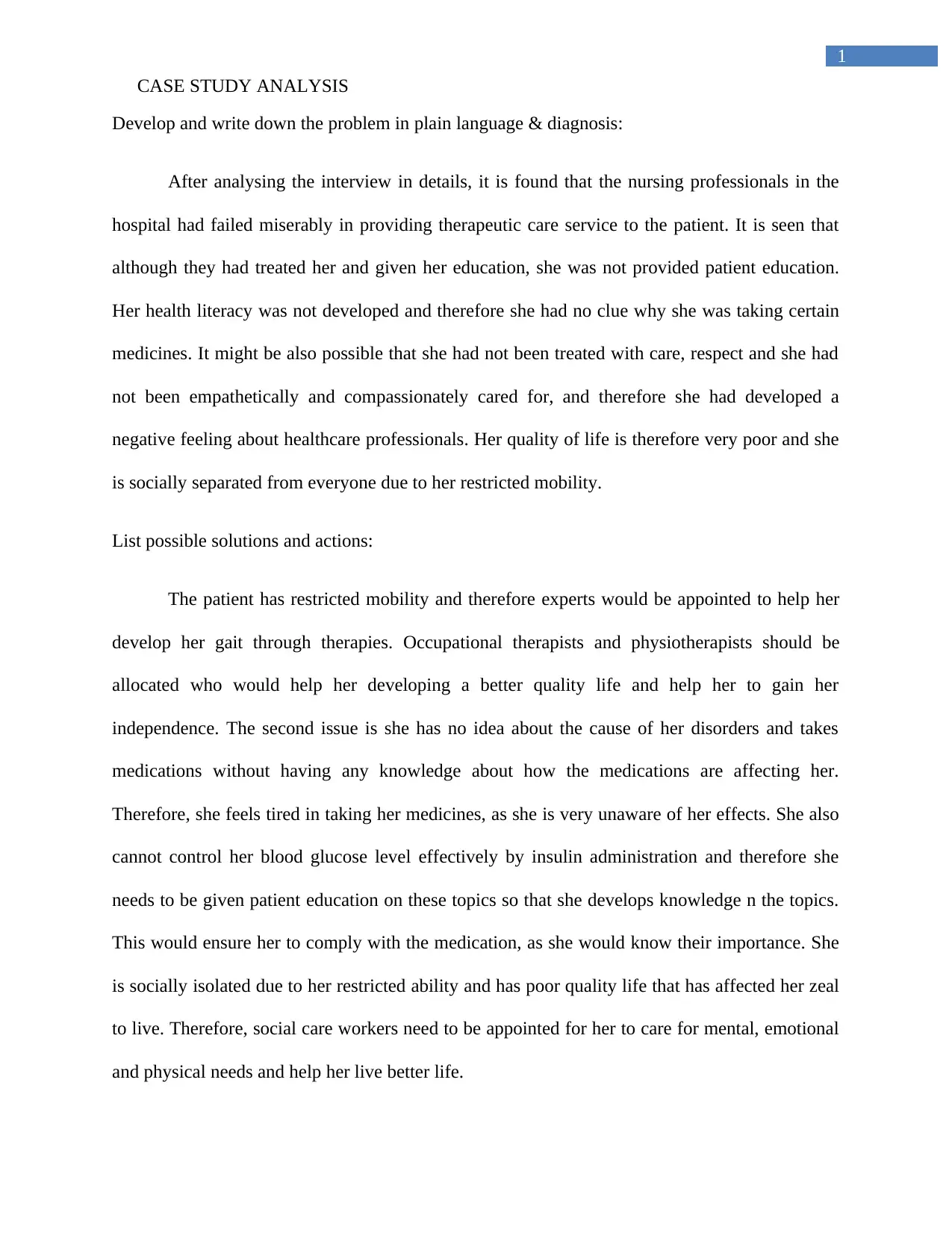
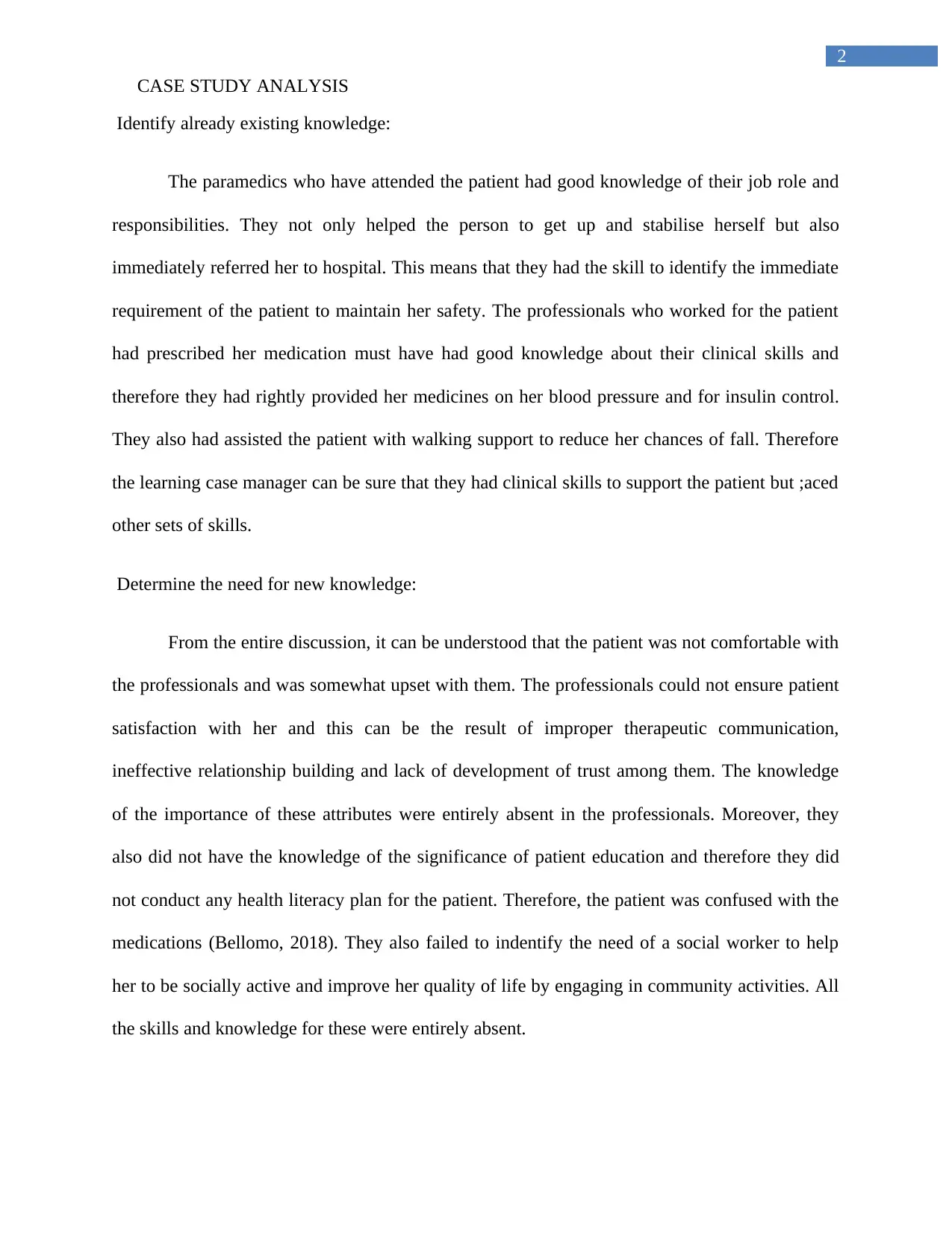

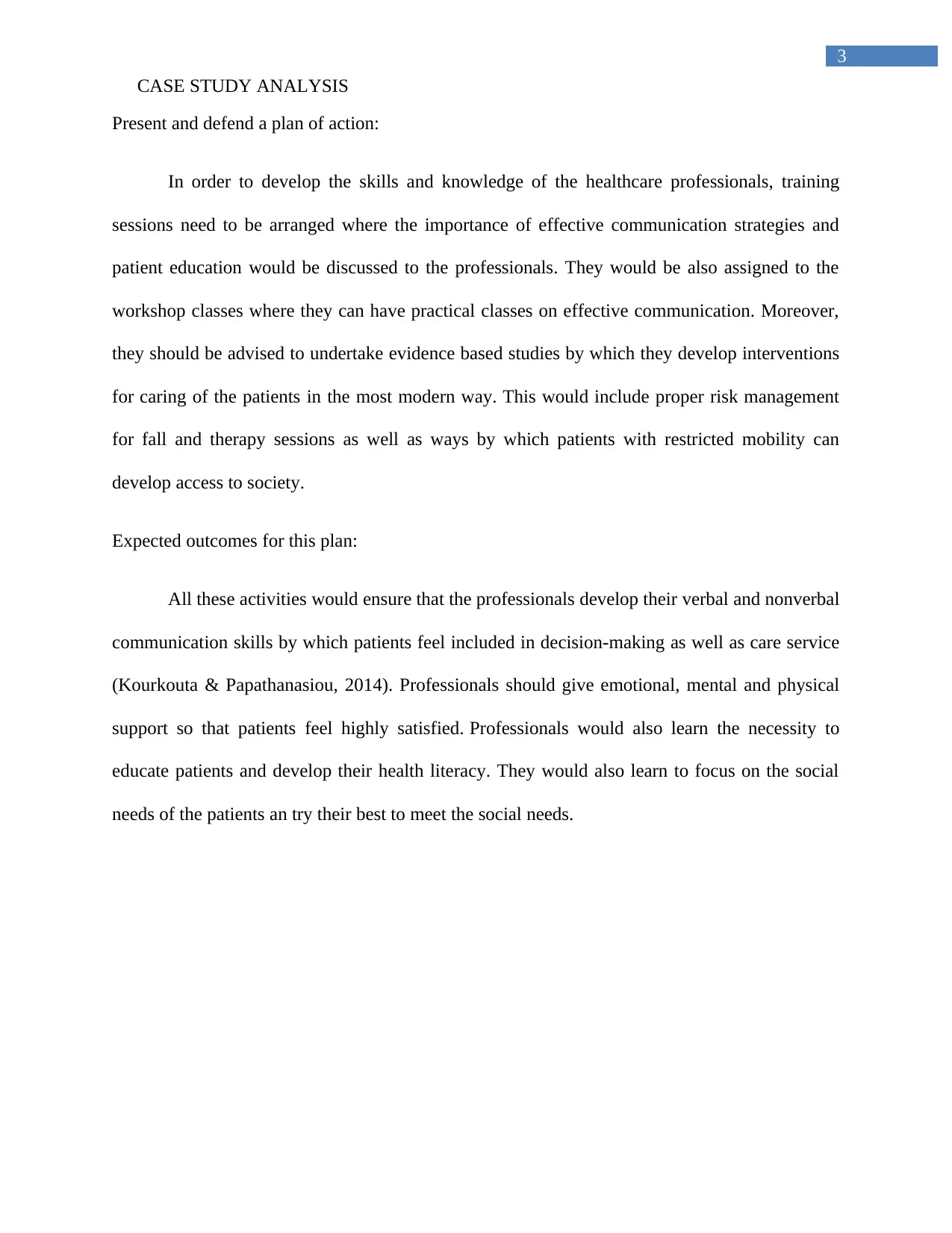
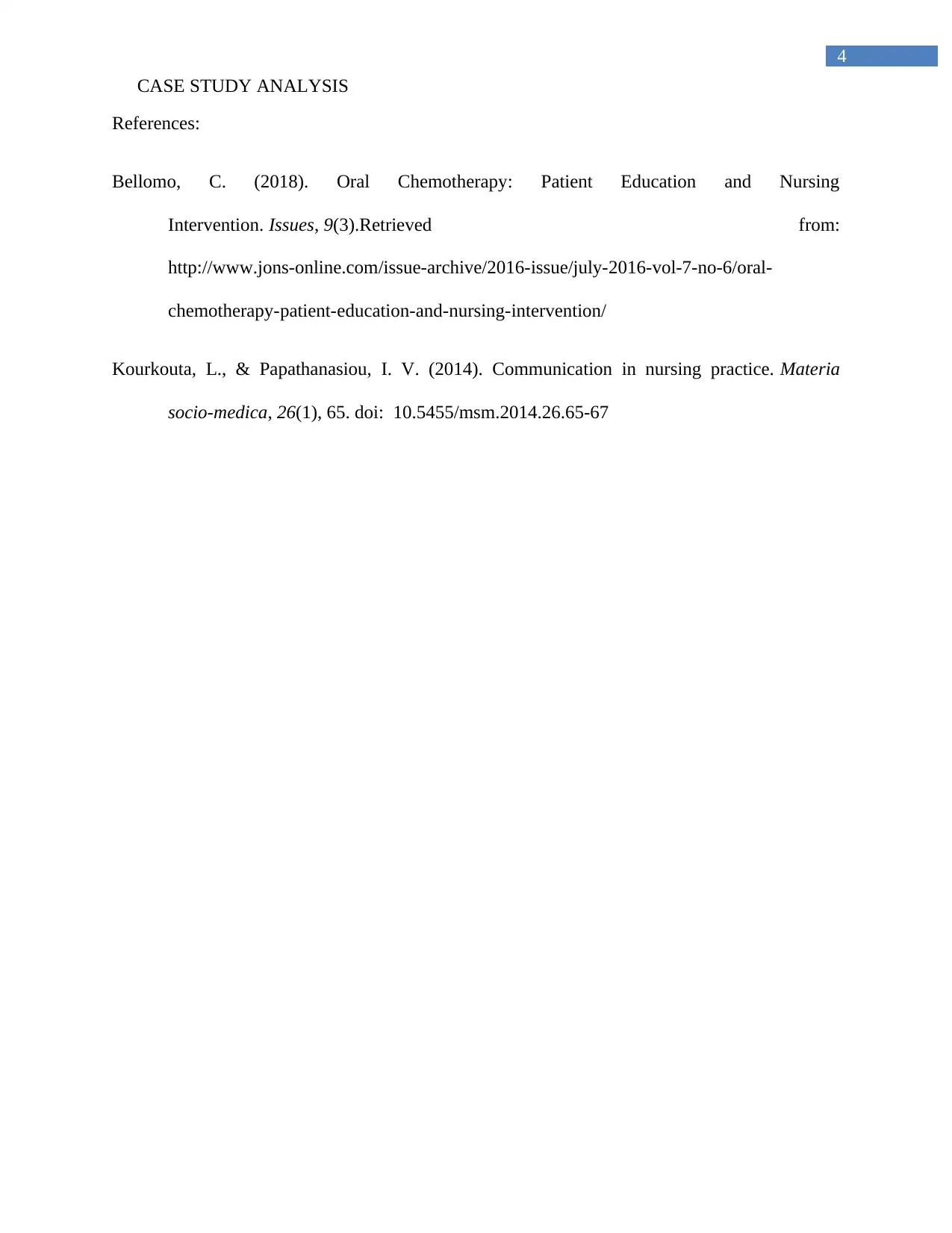





![[object Object]](/_next/static/media/star-bottom.7253800d.svg)